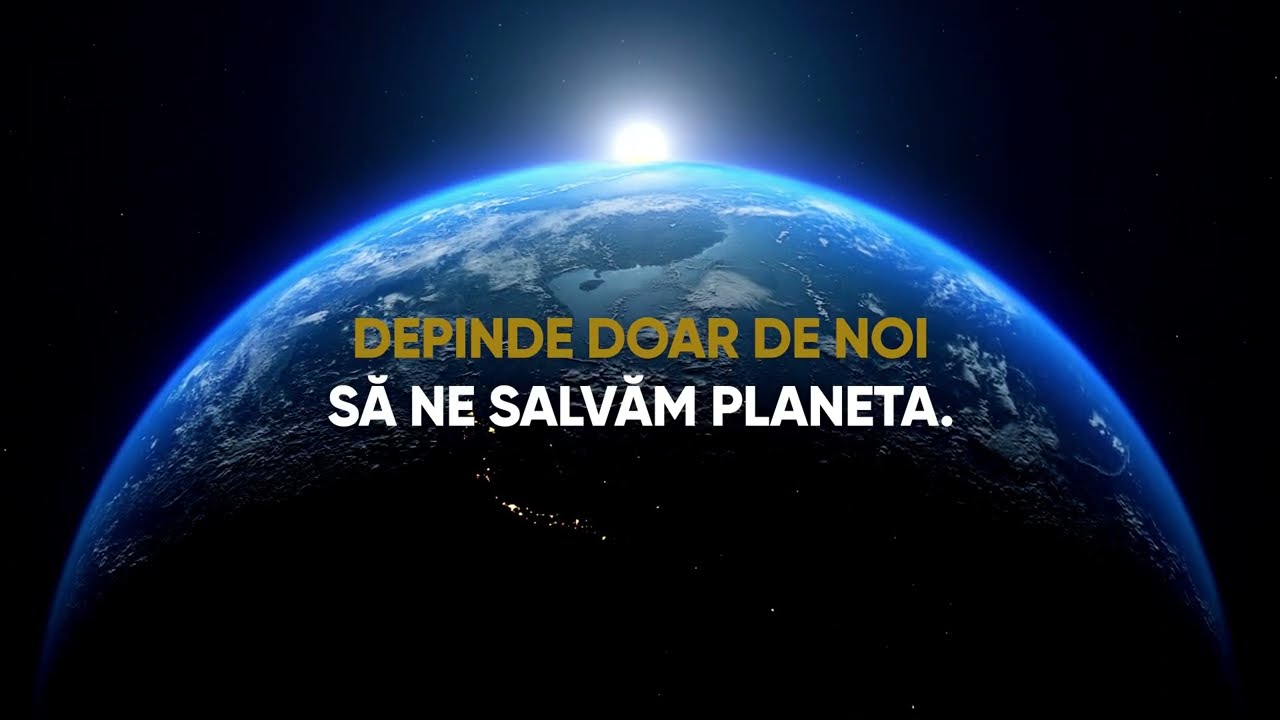Raport Greenpeace: 100% energie regenerabila accesibila tuturor
![Scenariul [R]evolutiei Energetice 2015](/sites/default/files/2017-11/ihiWu0k.png)
Cel mai recent raport al Greenpeace, Scenariul [R]evolutiei Energetice 2015 [1], demonstreaza ca omenirea poate face tranzitia catre 100% energie regenerabila, pana in 2050.
 Raportul nu prezinta doar aspecte legate de tehnologie, ci si costurile unei asemenea tranzitii si impactul acesteia asupra ocuparii fortei de munca din sectorul energetic. Astfel, analiza arata ca o tranzitie catre 100% energie regenerabila ar crea locuri de munca si ar fi competitiva din punct de vedere al costurilor. Mai mult, economiile realizate la costurile combustibililor fosili ar depasi valoarea investitiilor necesare.
Raportul nu prezinta doar aspecte legate de tehnologie, ci si costurile unei asemenea tranzitii si impactul acesteia asupra ocuparii fortei de munca din sectorul energetic. Astfel, analiza arata ca o tranzitie catre 100% energie regenerabila ar crea locuri de munca si ar fi competitiva din punct de vedere al costurilor. Mai mult, economiile realizate la costurile combustibililor fosili ar depasi valoarea investitiilor necesare.
In decurs de 15 ani, procentul de electricitate generata din surse regenerabile s-ar putea tripla, de la 21% cat este astazi la 64% - aproape doua treimi din electricitatea generata la nivel global ar putea veni din surse regenerabile. Chiar si cu dezvoltarea rapida a unor tari precum Brazilia, China si India, emisiile de CO2 ar putea scadea de la nivelul actual de 30 de gigatone pe an la 20 de gigatone, pana in 2030.
Sven Teske, expert al Greenpeace si autorul principal al acestui studiu, declara: „Industriile solara si eoliana au evoluat foarte mult si sunt competitive in materie de costuri cu carbunele. Este foarte posibil ca acestea sa depaseasca industria de carbune in ce priveste locurile de munca si cantitatea de energie livrata in urmatorii zece ani.”
Costurile pentru investitiile necesare ar fi acoperite fara probleme din economiile cu costul combustibililor. Investitia aditionala medie care este necesara in regenerabile pana in 2050 este de aproximativ 1 trilion de dolari pe an. Pentru ca regenerabilele nu au nevoie de combustibil, economiile pentru aceeasi perioada sunt de 1,07 trilioane de dolari pe an, deci mai mult decat costurile necesare pentru investitii.
Greenpeace a castigat o reputatie de necontestat pentru previziunile sale asupra cresterii potentiale si de piata in ce priveste energia din surse regenerabile. Grupul de consultanti Meister, cu sediul in SUA, a ajuns la concluzia ca prognozele Greenpeace au fost mai precise decat cele ale altor grupuri, inclusiv Agentia Internationala a Energiei, Goldman Sachs si Departamentul de Energie al SUA.
Kumi Naidoo, director executiv al Greenpeace International, adauga: „Cu acest scenariu oferit de Greenpeace, acordul climatic de la Paris trebuie sa ofere o viziune pe termen lung pentru eliminarea treptata a carbunelui, petrolului, gazelor naturale si energiei nucleare pana la mijlocul secolului. Obiectivul trebuie sa fie 100% energie regenerabila, accesibila tuturor".
Summitul climatic de la Paris, care va avea loc in mai putin de trei luni, ofera liderilor lumii oportunitatea de a face pasii necesari si importanti pentru a lupta impotriva schimbarilor climatice, accelerand transformarea treptata a sectorului energetic mondial, departe de combustibilii fosili si spre 100% energie regenerabila, pana la jumatatea acestui secol.
[1] Studiul complet impreuna cu un rezumat sunt disponibile la urmatorul link, in limba engleza:
http://www.greenpeace.org/international/en/publications/Campaign-reports/Climate-Reports/Energy-Revolution-2015/
100% Renewable Energy for all
The investment necessary to move toward 100% renewable energy by 2050 would be more than covered by future savings in fuel costs, according to a ground-breaking new report from Greenpeace, researched in collaboration with the German Aerospace Centre (DLR).
The Energy [R]evolution scenario 2015 also says more jobs would be created in the energy sector – with the solar industry alone employing as many people in the future as the coal industry does today. Its detailed data compares different regions of the world.
Within 15 years, renewables’ share of electricity could triple from 21% today to 64% -- almost two thirds of global electricity supply could come from renewable energy. Even with the rapid development of countries like Brazil, China and India, CO2 emissions could fall from the current 30 gigatonnes a year to 20 gigatonnes by 2030.
In jobs, the solar PV industry could employ 9.7 million people by 2030, more than 10 times as many as it does today. Jobs in wind power could grow to 7.8 million over the same period.
Sven Teske of Greenpeace, the lead author of the report, said:
"The solar- and wind industries have come of age, and are cost-competitive with coal. It is very likely they will overtake the coal industry in terms of jobs and energy supplied within the next decade. “
“It’s the responsibility of the fossil fuel industry to prepare for these changes in the labour market and make provisions. Governments need to manage the dismantling of the fossil fuel industry which is moving rapidly into irrelevance.
Every dollar invested in new fossil fuel projects is high risk capital which might end up as stranded investment.”
The necessary investment is more than covered by savings in future fuel costs. The average additional investment needed in renewables until 2050 is about $1 trillion a year. Because renewables don’t require fuel, the savings over the same period are $1.07 trillion a year, so more than meet the costs of the required investment, with the cross-over point happening between 2025 and 2030.
Kumi Naidoo, the Executive Director of Greenpeace International, said:
“We must not let lobbying by vested interests in the fossil fuel industry stand in the way of a switch to renewable energy, the most effective and fairest way to deliver a clean and safe energy future, so more than meet the costs of the investment.
“I would urge all those who say ‘it can’t be done’ to read this report and recognise that it can be done, it must be done and it will be for the benefit of everyone if it is done.”
The Paris climate summit, in less than three months, offers global leaders the opportunity to take the necessary and critical steps to fight climate change, by accelerating the steady transformation of the world’s energy sector, away from fossil fuels and towards 100% renewable energy by mid-century.
Naidoo adds: ‘With this Greenpeace scenario, the Paris climate agreement must deliver a long-term vision for phasing out coal, oil, gas and nuclear energy by mid-century, reaching the goal of 100% renewables with energy access for all.”


















